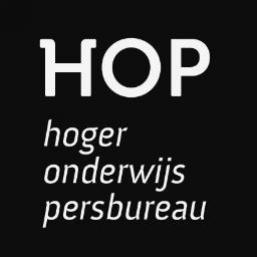
Students LSVb and ISO maintain their opposition to BSA
There are arguments in favor of binding study advice, student organizations LSVb and ISO acknowledge. Still, they are fiercely against it. What do they think is the deciding factor?
Universities in particular are making themselves heard now that Minister Robbert Dijkgraaf wants to curb binding study advice (BSA). They want to be able to handle the BSA as they see fit, or else in consultation with the co-decision makers.
At the end of the first year of study, students receive a “binding recommendation”. If they do not obtain enough points, they must leave the program. The standard is usually between 40 and 60 points, with exceptions for students in special circumstances.
Dijkgraaf wants to lower the bar. Programs may require a maximum of 30 points in the first year and then another 30 points in the second year. It remains to be seen whether his plan will pass, because the largest governing party, the VVD, is against it.
Right place
Joram van Velzen, president of the National Student Union (LSVb), calls it a difficult discussion. “On the one hand, there are concerns about performance pressure and the mental well-being of students. On the other hand, you don't want people to continue studying endlessly and not feel any pressure.”
Still, the LSVb wants to abolish the BSA. According to the union, it does not do what you might expect. Van Velzen: “It selects on credits, while the question should be whether students are in the right place.”
He refers to research by the Free University indicating that 85 percent of students go on to take the same course or a course in the same field at another university after a BSA. So does it make sense to send them away?
Instead, his idea is to provide better guidance to students. Van Velzen is also enthusiastic about the minister's proposal. It is a step in the right direction and Dijkgraaf also wants more attention paid to supervision. The LSVb would rather abolish “binding” advice, leaving the choice to students themselves.
Differences of opinion
The Interstedelijk Studenten Overleg also still opposes binding study advice. But the ISO represents the student councils of universities and colleges, four of whom dissent. They actually support the universities and signed an opinion article by the rectors in favor of the BSA.
“It is unfortunate that they feel this need,” said ISO president Terri van der Velden. “We are aware of the differences of opinion between them. For that matter, we know that the constituencies of these four student councils are also divided. These councils do not represent the opinion of every student in their city, either.”
All positions of the ISO are coordinated with their constituency, says Van der Velden. “This is one of the issues where there is not even that much discussion. There has always been a large majority vote for this position.”
Study advice to freshmen should have a referral and orientation function, which is not the case now. “It is an overblown form of selection,” Van der Velden argues.
Standard student
According to her, the proponents of the BSA reason from the perspective of the “standard student,” one with a high chance of completing a degree anyway and who also does some things besides studying. The student, in short, for whom the BSA is not a problem, but mostly constitutes pressure to continue studying.
“We stand for the students who are not the norm,” says Van der Velden. “These are the ones who, because of all the pressure, cannot complete their studies the way they want to. For them, the BSA is a disproportionate burden.”
Universities fear that the quality of education will drop if students stay on the program with few credits. But the BSA is not meant to improve the quality of education at all, Van der Velden argues. It is meant to help students consider whether they are in the right place. This is where attention should be paid.
Dijkgraaf wants more attention to be given to student guidance, but will that work? Everyone always wants better guidance. But according to Van der Velden, it can be done. At her own administrative and organizational science program in Utrecht, for example, it happened. “We received an enormous amount of guidance in the first year. Studying takes some getting used to. It's good when someone asks the question: Are you comfortable here; do you feel at home? I was really lucky with that.”
Politics
Minister Dijkgraaf sent his proposal to the House of Representatives. VVD MP Hatte van der Woude makes a scathing assessment of it. “I don't like it,” she said in NRC Handelsblad. “I quite understand that the minister feels empathy with students who suffer from pressure. But you don't help them by just setting the bar very low.”
Dijkgraaf's predecessor Ingrid van Engelshoven also proposed lowering the standard (to 40 points in the first year) and ultimately failed to get a political majority behind her. However, this proposal differs from the previous one. Soon, programs will be able to expel slow students even after the second year. The outcome of the discussion is hard to predict.

